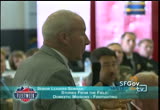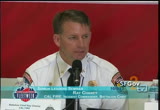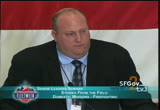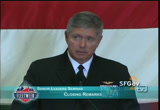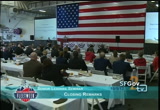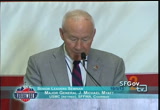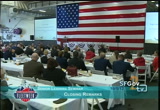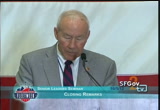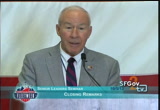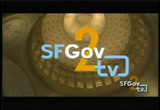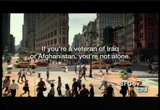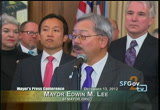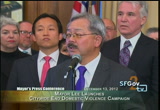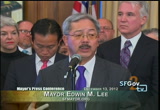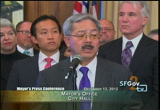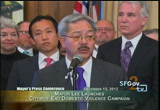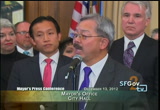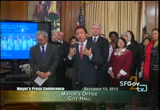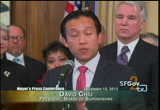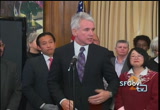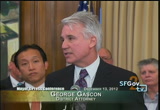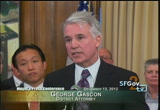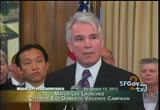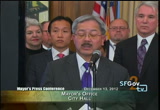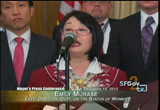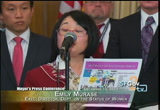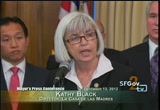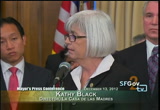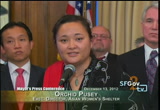tv [untitled] December 22, 2012 6:30am-7:00am PST
6:30 am
be training people to do shovel-like work? all you have talked about so far is aviation. >> one of the challenges with a ground-based attack and training a soldier to be a ground-based fire fighter is the training takes time. and it takes approximately 3 to 5 days of solid training to make sure that they are going to be working in a safe environment to learn what's going on. and most of the time that, the incidents in california will become mitigated. now, not to say that we certainly have that as an option. we have a fairly robust what we call fire crew program using cdcr inmate fire fighters. it is on our radar and it's something that we have as a contingency if we needed
6:31 am
to do it. >> lieutenant colonel. >> yes, general, in the mou it does address the ground portion but the focus of effort is mainly on the aviation side but it is built in there for the ground side if necessary. >> i just want to say in 2008 we did activate hand crews to fight fires and we've identified soldiers throughout the state to respond if needed. they've got the tools that they need, the boots and all that cached and available. it's really just a matter of getting the call and being ready to go. >> i was going to end with general myat. i know we've trained soldiers to do that kind of thing. after the colorado fires just recently they did put a lot of soldiers that trained, so we do still have that program who can do that if the need warrants. any other questions from out there before i turn it over to
6:32 am
general myat? let me thank our panel here. >> thank you. (applause). as we leave here today, we need to keep the ball moving forward. we can't -- i think most of us all here would agree, we really can't prevent the next disaster from happening. but by building the partnerships that we are here today and will continue to build in the future, we can certainly limit the number of deaths and long-term destruction. we can surge a lot of things:
6:33 am
resources, people. but we cannot surge trust. so venues such as this is what helps us build that trust so that when the bell does go off we know -- a comment i made yesterday and i'd like to use it again in closing today, the most important thing for me to come out of this two-day seminar and sbat -- into the future is the ability for us to physically face to face look each other in the eye, shake hands and say to each other, we are in this together. thank you, ladies and gentlemen. . (applause). >> thank you, admiral beeman. you have helped me carry out one of the instructions
6:34 am
secretary schultz gave to me 3 years ago, bring the fleet back to fleet week. we couldn't do it without you. i thank secretary and mrs. perry for coming, just -- i know it's, you've got some other things, people are waiting on you right now but i really appreciate you coming here. of course secretary and mrs. schultz for the entire program. vice admiral nathan, i don't know if he's here, he may have gone already, but he gave a great talk yesterday on the medical side. and vice admiral z, coast guard, our senior rep here, i can never pronounce his name but he's made things great. general speese, thank you for making this happen. rear admiral hubner, he was here, he's been terrific working with us. rear
6:35 am
admiral rivera coming up from the chilean navy, thank you so much. i learned a lot. we need the kind of input that we got from you, really, and we thank you so much. i would be remiss not to mention the two people that really are responsible for all this. first was lewis loeven. lewis loeven works hours and hours to do this. thank you so much. but the other is because she's committed to make it happen and it's her focus that always to learn from everything that happens, ann koninberg at dem, thank you so much, ann, for everything you do. you had to have a pass to get on the ship. i've asked captain pringle, to get off
6:36 am
the ship, i wonder if you can secure the hatch until they fill out their participant form. if you could do that, i would appreciate that. fleet week, we are a neutral convener of the process to improve the relation ships between this global force for good and the local civilian officials. and one of our goals is next time you put up your slide with all those logos on it, general, you are going to have the san francisco fleet week logo on it, too. i look at what we accomplished in 2010, we had a meeting to understand dsca, in 2011 we had the table top exercise, we debriefed that, we had a great speaker then we had an education seminar. this time, this year we had a functional exercise in august which was terrific, you saw the panel, a
6:37 am
medical exercise as part of fleet week and you saw the enthusiasm of the participants, then we had the back brief. now we've had a strategic operational and tactical discussions about going forward and the things that we can accomplish. so what are you going to do in 2013? well, fill out the form and tell us what you think we ought to do but we're going to be working hard to move this forward. i think ray cheney said it from cal fire best today: we are all better off because we're in here for the last day and a half and i'm sitting here wondering, all my contemporaries, what have they been doing for the last 36 hours? they haven't been doing anything near as important as what we've been doing. i thank all of you so much for participating and stay in touch. if we've got your email address you will never be lonely because we're going to get you back here next year. thank you all so much. (applause).
38 Views
IN COLLECTIONS
SFGTV2: San Francisco Government Television Television Archive
Television Archive  Television Archive News Search Service
Television Archive News Search Service 
Uploaded by TV Archive on

 Live Music Archive
Live Music Archive Librivox Free Audio
Librivox Free Audio Metropolitan Museum
Metropolitan Museum Cleveland Museum of Art
Cleveland Museum of Art Internet Arcade
Internet Arcade Console Living Room
Console Living Room Books to Borrow
Books to Borrow Open Library
Open Library TV News
TV News Understanding 9/11
Understanding 9/11